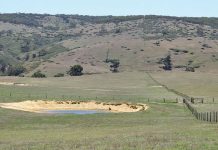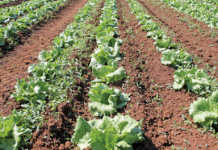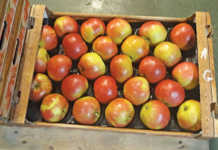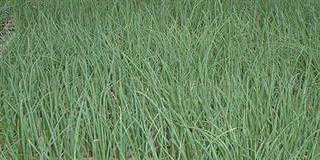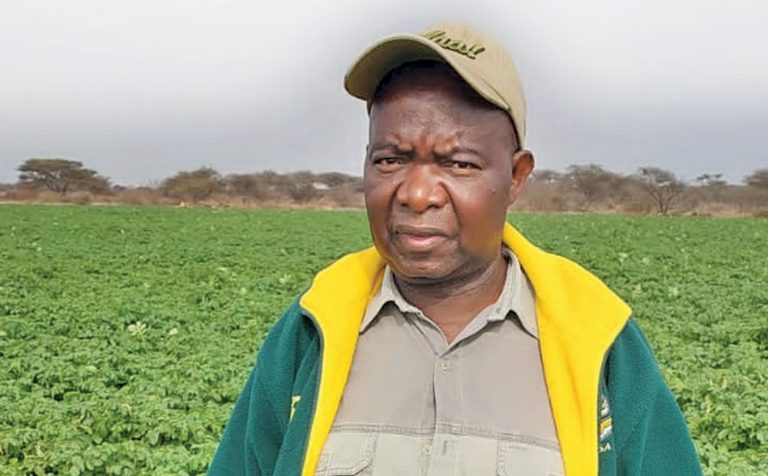
Photo: Supplied
Walter Mathidi started planting potatoes in Vivo, Limpopo, in 2015. But looking back, he believes he could not call himself a farmer then despite going through all the motions of the job.
“I started with 3ha but I struggled to grow. Some years I would get 14t/ha, other years the whole crop would fail. Potatoes might look easy to grow, but it is very complicated, and without the right expertise it is difficult to succeed,” he says.
The turning point came when he applied to be a part of Potatoes SA’s transformation programme, where farmers are assigned a mentor and assisted with seed purchases.
Since joining the programme three years ago, Mathidi has taken his yield beyond the industry average of 50t/ha to 65t/ha. He has increased his land under production to 160ha, which is split into four to allow for a four-year rotation.
“Today I can call myself a potato farmer. I understand the crop, how to manage the soil, disease pressure and irrigation, and can properly manage the marketing of my crop to get the best prices,” he says.
Real transformation
Mathidi still has another two years of learning to look forward to before he reaches the end of the five-year programme offered by Potatoes SA.
This is however not the case with all the farmers in the programme, and Willie Jacobs, CEO of Potatoes SA, laments that progress in the transformation programme has been slow.
The programme aims to get a farmer to a commercial level within five years.
This means they must be able to access financing on their own, at normal rates that are not discounted for development reasons. Jacobs says that getting farmers to a commercial level within five years is in many instances a tall order, since there are so many factors that determine success.
“We are in the seventh year of the cycle and although the number of outright commercial farmers achieved is not high as yet, we are seeing remarkable progress from where the farmers started to where they are now.
“There are a lot of farmers in the scheme that are doing very well – they understand potato farming and have good prospects for future success. In two years we will be able to show real progress.”
Available funding also inhibits progress. Funding for the programme is obtained through levies paid by commercial farmers to Potatoes SA. Funding for two seasons has been secured from the Limpopo Department of Agriculture, Land Reform and Rural Development.
Potatoes SA includes 15 to 20 farmers a year in the programme, allocating 13 farmers per mentor.
In the first year, the organisation funds 100% of the farmer’s seed requirement. In year two, it drops to 75%, in year three 50%, continuing until the farmer can buy or finance their own seed in year five. During this time, farmers are assisted with bookkeeping so that they are able to approach commercial banks for loans in future.
Business plan
The process starts with farmers applying to be a part of the programme. An internal selection process takes place at Potatoes SA, where resource availability is a key focus.
An individual business plan is then drawn up for each of the selected farmers which takes into account the amount of land they have to ensure that the four-year field rotation rule can be adhered to.
Jacobs clarifies that land availability does not mean farmers have to own the land. Rented land is also considered, but secure agreements must be in place to ensure that land earmarked for the full four-year rotation will be available when needed.
“Support from the surrounding community is crucial in cases where farmers are renting traditional land. We have experienced many hiccups in the past when farmers start doing well, but the community’s perception is that they are not benefiting.
“These relationships need to be carefully managed to ensure continuation of the use of land.” If the business plan indicates a high level of success, the farmers become part of the programme.
This business plan is then also used to secure additional funding from government. Jacobs explains that the business plan is a critical step in the process, since any real transformation effort is unlikely to succeed unless there is a sound business case.
The added benefit of having a sound business plan is that it becomes easier to access funding set aside for transformation projects by government and the private sector. Jacobs therefore believes that successful transformation of the potato industry lies in having sound project models, rather than available funding from levies.
“Companies like [potato chip makers] Simba and McCain will readily step in and assist farmers on their way to commercialisation if there is a strong business case. This is a win-win situation because the companies get farmers that are well on their way to becoming commercial, and the farmer himself can benefit from off-take agreements for their produce.”
Part of making the business case work is getting the necessary yields. Potatoes SA’s data shows that yields among small-scale farmers in Africa average 12t/ha, while commercial farmers in South Africa achieve 50t/ha on average.
“The road to becoming financially viable is that much shorter if your yields are on par. This is why getting the right advice plays such a big role in success,” says Jacobs.
Quality seed
The intricacies of potato farming include sourcing the right seed, at the right time. Mathidi says that the support he receives from Potatoes SA in this regard has played a major role in establishing himself as a farmer.
“Seed is the most expensive input in potato farming, and also the aspect that requires the most knowledge. Previously I would plant whatever seed was available to buy, and didn’t pay much attention to where the seed came from or what cultivar it was.
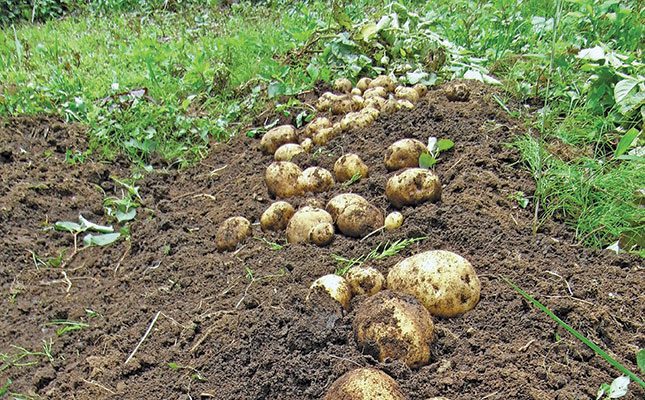
“But now I realise that it is crucial to buy only certified seed. The cultivar must also be selected carefully as there are those that give better yields, are more disease-resistant than others, and those that can only be planted at a certain time of year. The fact that I have access to quality seed has made a big impact in increasing my yields.”
Jacobs also attributes much of the programme’s success to the fact that seed quality is overseen, from purchase to delivery.
“There are so many re-sellers of seed that it is very difficult to determine its origin and quality, both of which are important. While the certification logo is on the packaging, not all farmers know how to interpret it. The planting window of potato seed can be very specific. If you miss the window, then your success rate for germination is vastly reduced.”
He notes that there are many aspects to potato farming that require in-depth knowledge and understanding, and this makes it difficult to undertake this kind of production successfully without the right support.
“From Potatoes SA’s side, we have so much knowledge within the industry and having a transformation programme that can disseminate this knowledge is vital to allow everyone to benefit.”
A fruitful partnership
Jacobs and Mathidi agree that another key to success in elevating emerging farmers to a commercial level lies in quality mentors.
Says Jacobs: “We select mentors that have a genuine passion for farming and seeing other people succeed.
“In our industry it is often said that if you want to get the irrigation schedule for potatoes right, then you literally have to sleep next to the irrigation pivot. There are mentors that have actually managed to do that with their mentees so that they can look after their water!”
Mathidi believes that having a mentor has made all the difference in increasing his expertise as a farmer. His mentor, Alec Jandrell, is on the farm so often that it feels more like being in a partnership than merely having an adviser.
“We have developed such a good relationship from spending so much time walking through the fields. I need to keep a book with me every time he visits to take notes of all the things I learn. There is always something new.”
Mathidi has gained a better understanding of the industry as a whole, from soil preparation and production to marketing. He was even able to avoid a tuber-moth infestation in his fields this year despite the surrounding farmers falling prey to it, thanks to timely advice from Jandrell.
“Potatoes is a complicated product. If you don’t have a teacher you will suffer. The crop needs far more care than many other vegetables and it is easy to fail. I think this is why so many first-time potato farmers don’t make it – they underestimate what it takes to produce a crop,” he says.
Mathidi points out that decisions surrounding planting are now considered more carefully.
“I no longer plant potatoes just because the land is there. I assess the weather and the water availability first, and plan my crop accordingly.
“Climate change and its implications are very much felt in this area and it needs to be taken into account. If there is no water to see the crop through the whole season, then there is no point in planting seed,” he adds.
It is also vital to work with good-quality soil. “Land preparation must be done properly. Doing a half job will not get you anywhere. Test the soil, adapt the fertiliser programme accordingly and follow a crop protection programme.
“Most importantly, farm with your boots in the soil. You don’t farm potatoes by driving past the field – you need to walk in it so that you can assess what is going on and act quickly if there are pest infestations. These are the most important lessons I have learnt through my mentor.”
Achieving good prices for his crop is another area where Mathidi has succeeded. He sells his potatoes directly to fresh produce markets in Limpopo and Gauteng. With an added understanding of market dynamics and marketing produce effectively, with minimal cost, he achieves higher prices for his crop than previously.
He emphasises that it is important to invest the income back into the business. “Many farmers make the mistake of thinking that this money can be used for luxuries or private expenses. If you want to grow, you need to plough the money back into the farm.”
Although 2026 will mark the end of Mathidi’s official mentorship, he notes that in addition to the help he gets from Jandrell, his neighbour Derek Fick has been just as eager to see him succeed.
“I’ve received so much help from Derek. He has no problem walking over to my fields and giving me advice. He has been a good neighbour and he adds to the knowledge I get from my mentor. Each has their own level of expertise from which I can benefit,” he says.
Jacobs adds that besides the official mentors, there are many commercial farmers who act as unofficial mentors, helping emerging farmers around them.
“There really is a willingness from commercial farmers to assist a new generation of farmers to get into the business.”
Mathidi’s belief in the value of knowledgeable mentors and involvement in organised agriculture as the key to success is unquestionable. “There is very little chance of success in potato farming without being involved with Potatoes SA. The journey would be very short!”
As for his own contribution to success, Mathidi is clear about the commitment it takes: “There’s no good luck – it’s just hard work.”


